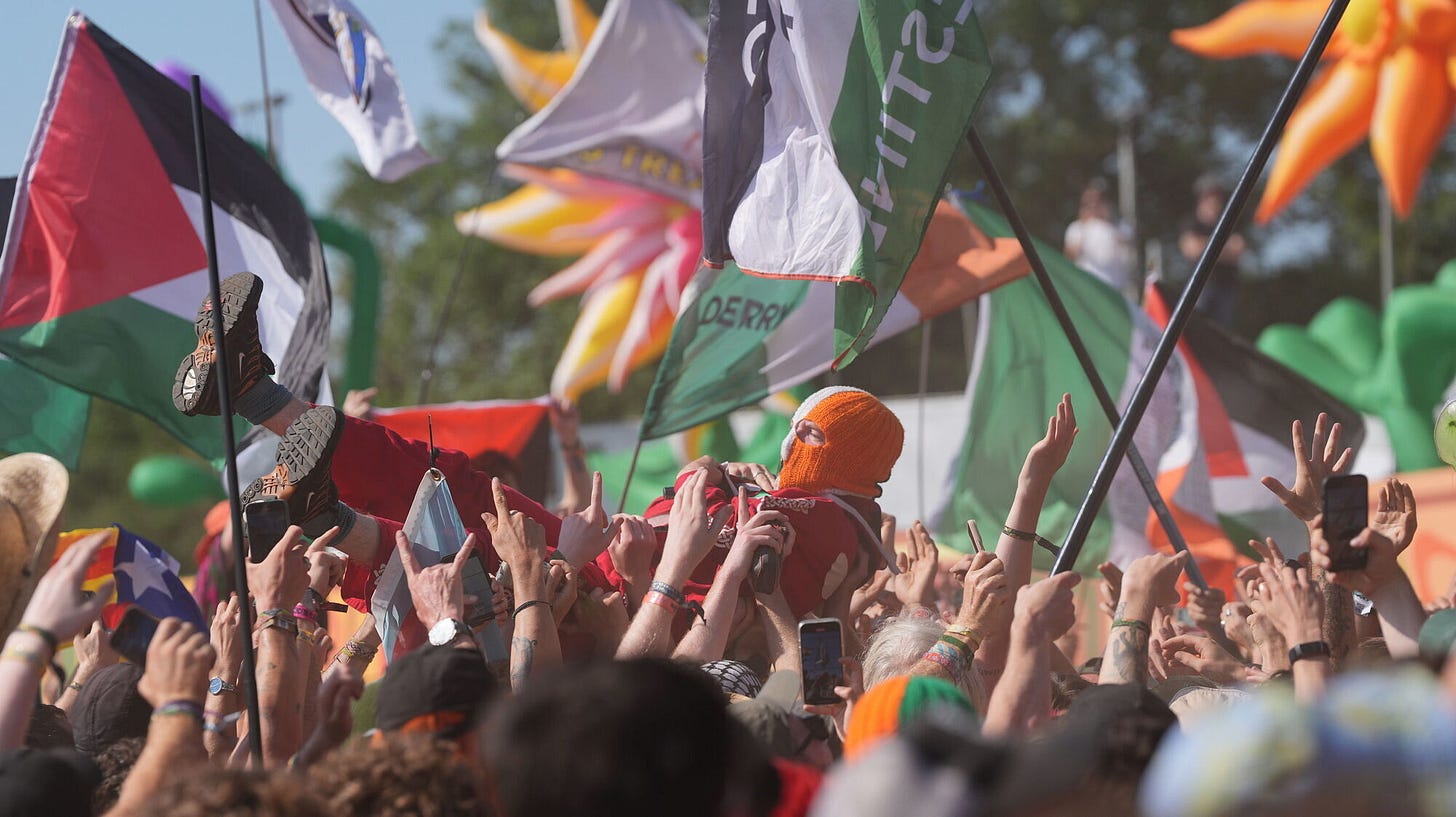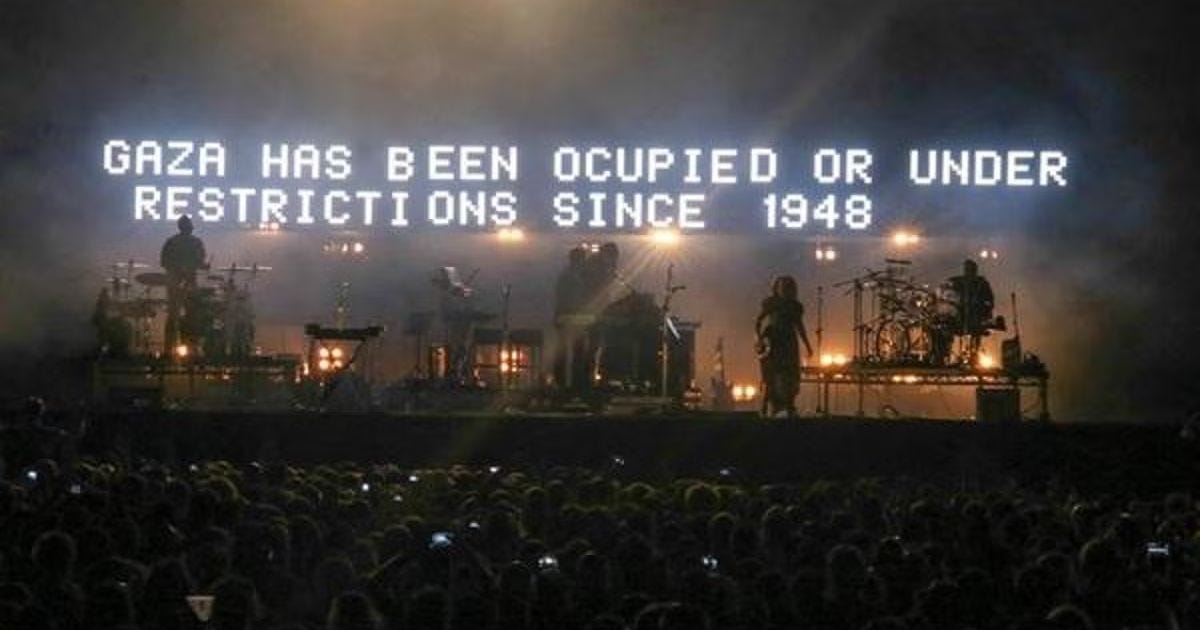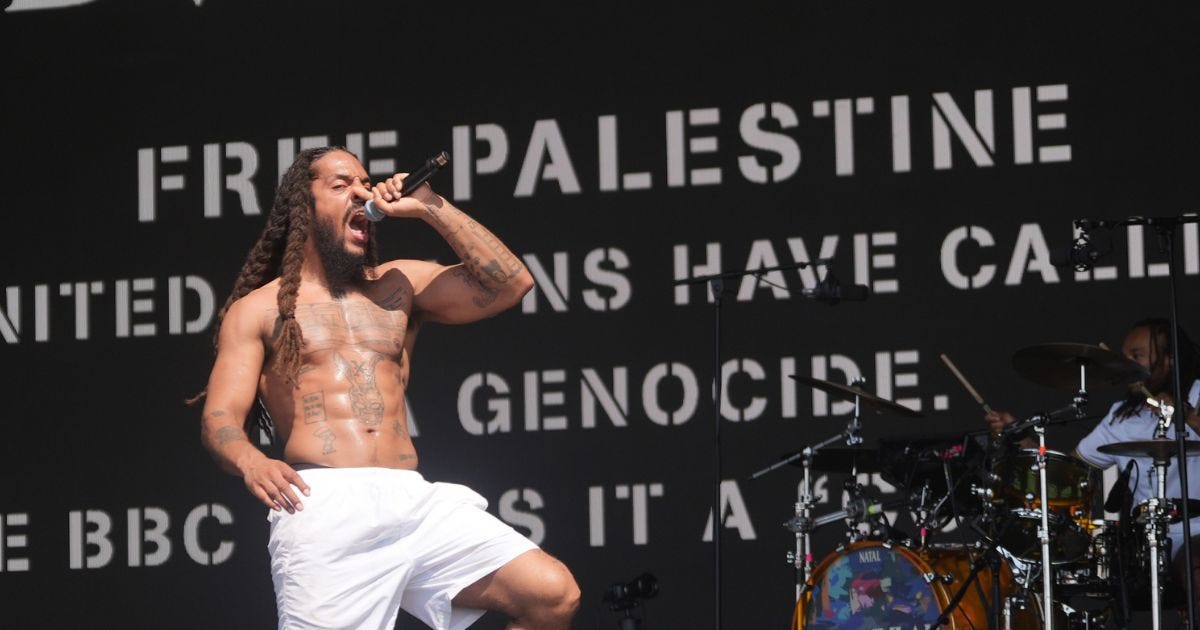The Enduring Battle Between Artists and the UK's Political Red Lines
From the defiant roar of punk rock to the impassioned calls for justice at recent festivals, artists in the UK have consistently challenged the establishment, often facing significant backlash.
From the spirited folk singers of the post-war era to the defiant punk bands of the late 20th century, music in the UK has consistently served as a powerful medium for social commentary and political dissent. British artists, often reflecting the nation's rich history of protest and social activism, have frequently dared to challenge the prevailing establishment, articulating grievances and sparking public discourse.
This inherent power, however, has often placed them directly in the crosshairs of the very systems they criticise. When artists have chosen to speak truth to power in the UK, the establishment, encompassing government bodies, media outlets, and even elements of the public, has historically responded with a chilling array of tactics: censorship, media blackouts, public ridicule, economic pressure, and subtle forms of professional marginalisation, demonstrating a profound discomfort with voices that refuse to conform.
While my focus here is on the UK, we must acknowledge world-famous US examples that underscore the universality of this struggle:
Abolitionist & Civil Rights Movement (19th-20th Century):
Spirituals and Gospel: Originating from enslaved African Americans, these songs often contained coded messages of freedom and resilience. They later became powerful anthems during the Civil Rights Movement, providing solace, strength, and unity (e.g., "We Shall Overcome," "Swing Low, Sweet Chariot").
Folk Music: Artists like Billie Holiday ("Strange Fruit" - protesting lynching) and Sam Cooke ("A Change Is Gonna Come" - inspired by his experiences with segregation) used their voices to directly confront racial injustice.
Anti-War Movements (Vietnam War, Iraq War):
Folk & Rock Protest Songs: The 1960s saw a surge of anti-war anthems, notably by Bob Dylan ("Masters of War," "Blowin' in the Wind"), Joan Baez, and Pete Seeger. Later, bands like Creedence Clearwater Revival ("Fortunate Son") critiqued the class disparities of military service.
Punk & Alternative Rock: In later conflicts, bands like Green Day ("American Idiot") offered scathing critiques of government policy and war.
Hip-Hop and Social Justice (Late 20th-21st Century):
Conscious Hip-Hop: Artists like Public Enemy ("Fight the Power," "By the Time I Get to Arizona") used their music as a direct, often confrontational, commentary on racism, police brutality, and systemic inequality in America.
Modern Hip-Hop and R&B: Contemporary artists like Kendrick Lamar ("Alright" - an anthem for Black Lives Matter) and Childish Gambino ("This Is America" - criticising gun violence and racial issues) continue to use their platforms for social commentary.
The history of this contentious relationship in the UK is long and complex, a narrative intertwined with threads of artistic defiance and institutional repression. In the immediate post-war period, as Britain grappled with rebuilding and shifting social landscapes, folk music began to come together as a voice for the working class and budding protest movements. Figures like Ewan MacColl, though perhaps not a household name globally, was a towering figure in the British folk revival. His songs often depicted the harsh realities of industrial life, advocating for workers' rights and challenging the inequalities inherent in the class system. While not facing the direct government blacklisting seen in McCarthyite America, artists like MacColl and his contemporaries often found themselves operating outside mainstream media, their socialist leanings viewed with suspicion by the BBC and other powerful cultural gatekeepers. Their work circulated through folk clubs and trade union gatherings, a testament to the informal networks that supported dissenting voices when mainstream avenues were closed off.
The 1960s witnessed a booming counter-culture, and while many British Invasion bands initially focused on rock and roll, the seeds of political engagement were sown. The Beatles, largely steered clear of clear political statements in their early years, but as the decade wore on, songs like Revolution (though debated in its intent) marked a shift. It was John Lennon, post-Beatles, who became the most prominent and controversial political voice. His move to the US and his fervent anti-war activism, particularly against the Vietnam War, drew the attention of the Nixon administration's FBI. There was intense targeting of Lennon, aimed at deporting him, while originating in the US, reverberated globally and served as a stark warning to other artists about the potential consequences of highly visible political dissent. Back in the UK, Lennon's outspokenness on various issues, though less directly repressed by the British government than by the US, often generated significant media scrutiny and establishment discomfort.
The late 1970s brought the arrival of punk rock, a movement intrinsically linked to a deep rooted anti-establishment sentiment in Britain. Fuelled by economic stagnation, high unemployment, and a sense of disillusionment with the existing political and social order, bands like The Sex Pistols emerged as the snarling voice of a generation. Their infamous single, God Save the Queen, released during Queen Elizabeth II's Silver Jubilee in 1977, was not merely seen as disrespectful; it was a direct, venomous assault on the monarchy and the perceived unhappiness of British society. The song's lyrics (God save the Queen….She ain't no human being….There is no future….In England's dreaming) were seen as so provocative that the BBC and most commercial radio stations immediately banned it. This act of censorship, a blunt instrument of the establishment to control public discourse, ironically backfired spectacularly. The ban only amplified the song's notoriety, turning the band into instant symbols of defiance and cementing their iconic status as rebels. The moral panic started by the press, portraying punk as a dangerous threat to youth and social order, was another form of establishment targeting, aiming to demonise and discredit the movement.
The Clash, arguably punk's most effective political voice, went further than simple rebellion, knitting sharp criticisms of racism, police brutality, unemployment, and global injustices into their powerful lyrics. Songs like "White Riot," "London Calling," and "Guns of Brixton" were direct indictments of Thatcherite Britain. The band actively championed movements like Rock Against Racism, playing benefit concerts and speaking out against the rise of the National Front. This unwavering commitment to left-wing politics and anti-fascism ensured they were viewed with suspicion by right-wing media and, at times, local authorities. Their concerts were often sites of heightened tension, and their outspokenness meant they were never truly welcomed by the mainstream British establishment, despite their immense musical talent and international influence.
The 1980s saw the continuation of politically charged music, primarily in response to the divisive policies of Margaret Thatcher's Conservative government. The Specials, key figures in the 2 Tone ska revival, used their music to address the realities of urban decay, unemployment, and racial tensions in Britain. Their track "Ghost Town" (1981), released during a period of widespread riots across UK cities, covered the bleak mood of a disillusioned generation. While not facing direct governmental bans, the song's stark portrayal of social breakdown was a profound challenge to the government's narrative of progress and prosperity, causing consternation in official circles.
The work of Billy Bragg throughout the 1980s and beyond typifies consistent artistic resistance. Bragg's folk-punk anthems were socialist, passionately advocating for workers' rights, opposing nuclear proliferation, and championing social equality. His involvement with Red Wedge, a collective of musicians and artists supporting the Labour Party, was a direct political intervention. Bragg faced the pressure of being branded a political artist, which, in a commercial music landscape, leads to marginalisation by radio programmers and record labels hesitant to alienate a conservative audience. Yet, his commitment never wavered, making him a beloved figure among those who shared his ideals.
Across the Atlantic, US bands continued to face different forms of backlash. Public Enemy, the hip-hop group, with their explicit attacks on systemic racism, inequality, and the American establishment, particularly in relation to the black experience, faced immense pressure. Their song "Fight the Power" became an anthem, but their uncompromising stance led to FBI warnings and widespread condemnation from law enforcement agencies, demonstrating how powerful institutions in the US targeted outspoken artists, much like the police and press reacted to punk in the UK.
As the UK moved into the 1990s and 2000s, bands like Massive Attack, while not always clear lyrically in their political messaging, used their platform to address global injustice, war, and human rights. Their stance against Israeli occupation and their support for Palestinian rights, has made them a target for criticism from pro-Israel groups and elements of the press, leading to calls for boycotts and accusations of antisemitism.
The digital age has brought new battlegrounds, where the speed of information and the fervour of online communities can swiftly amplify both support and condemnation. This was starkly evident in the recent fallout from the Glastonbury Festival, a bastion of British counter-culture that has historically offered a platform for diverse voices, including those critical of the establishment. This year, the performances of Irish-language rap group Kneecap and UK punk-rap duo Bob Vylan ignited a fierce political storm, demonstrating the enduring sensitivity of certain political issues and the establishment’s swift reaction to perceived offences.
Kneecap, already facing legal challenges in the UK (with Mo Chara charged under the Terrorism Act for allegedly waving a Hezbollah flag at a prior concert), used their Glastonbury set to vocally condemn Israeli actions in Gaza, explicitly accusing Israel of genocide and criticising Prime Minister Keir Starmer for his stance. They reportedly led chants of Free Palestine to a massive crowd, a significant portion of whom were waving Palestinian flags. Bob Vylan, performing just before Kneecap, further escalated the political tension by leading chants of "death, death to the IDF" and displaying on-screen messages stating that Israel's actions in Gaza constituted genocide.
The immediate aftermath was a torrent of condemnation from across the UK establishment and media. The BBC, which livestreamed Bob Vylan's performance, issued a swift apology, stating they should have pulled the stream and that the comments were "deeply offensive" and "utterly unacceptable," with Culture Secretary Lisa Nandy demanding an "urgent explanation" from the BBC Director-General. Prime Minister Keir Starmer publicly condemned the chants as "appalling hate speech," reiterating his earlier stance that Kneecap should not have been given a platform. The Israeli Embassy in the UK expressed its "deep disturbance" at the "inflammatory and hateful rhetoric," equating the chants to calls for the dismantling of the State of Israel and antisemitic. Police have subsequently launched a criminal investigation into both performances, classifying them as "public order incidents." Furthermore, in a significant international repercussion, the US State Department revoked the visas for Bob Vylan, citing their "hateful tirade at Glastonbury" and declaring that "foreigners who glorify violence and hatred are not welcome visitors to our country."
This swift and coordinated condemnation from political leaders, mainstream media, and law enforcement illustrates the continuing power of the establishment to target and "round on" artists whose political statements are deemed too radical, too offensive, or go against their own beliefs. The accusations of "hate speech" and the immediate launch of criminal investigations serve not only as punishment but also as a deterrent to other artists contemplating similar vocal dissent. Critics argue that it represents a excessive response, an attempt to silence legitimate outrage against injustices, and a double standard given the historical tolerance for other forms of protest at Glastonbury. Calling for the end of a military force, especially one accused of committing atrocities by international bodies, is not inherently antisemitic and that the conflation of criticism of Israeli government policy with anti-Jewish sentiment is a deliberate tactic to stifle free speech.
The incident at Glastonbury highlights that while the mechanisms of suppression have evolved, the underlying tension between artistic expression and political control remains a fierce and undeniable force. Traditional censorship, economic pressure, and character assassination are now augmented by digital pile-ons, the weaponisation of social media, and the rapid deployment of legal and diplomatic consequences. The fear of losing ones livelihood, reputation, or even freedom through travel restrictions is a powerful deterrent.
Yet, despite these widespread challenges, artists continue to stand up. The very act of creating and performing politically charged music, especially in the face of such aggressive adversity, becomes a powerful act of resistance in itself. The persecution often amplifies the message, turning the targeted artist into a symbol, a martyr, or an unyielding voice of conscience. The songs, once suppressed or condemned, often find their way into the public consciousness through underground networks, digital platforms, and the passage of time, becoming anthems for future generations.
The establishment's attempts to control the narrative through repression ultimately highlight the enduring power of art to challenge, provoke, and inspire, proving that while voices can be silenced, the spirit of dissent, once ignited, is remarkably difficult to extinguish. The ongoing struggle between artistic expression and political control remains a vital battleground for freedom in societies across the globe.








